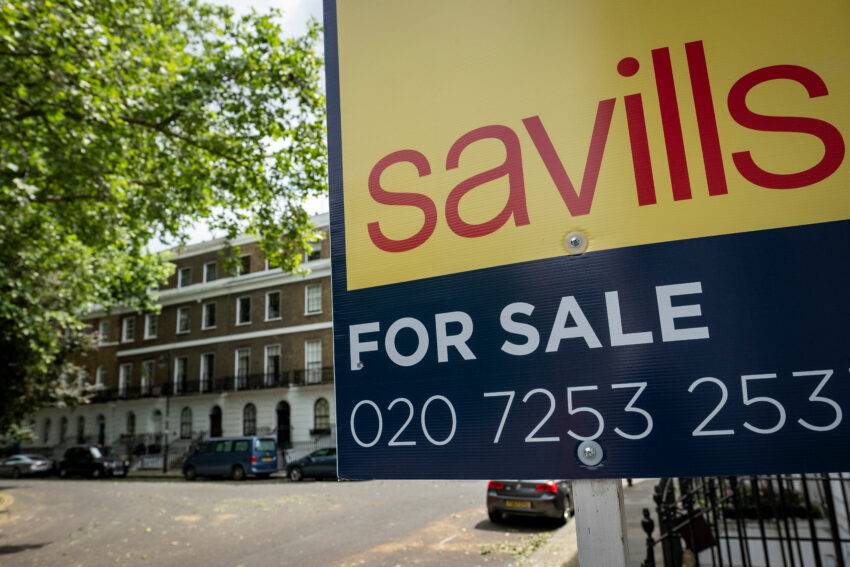Savills, a leading estate agency, has revised its house price forecast for this year, projecting a growth of 2.5 percent, a significant turnaround from its previous prediction of a 3 percent fall.
This shift reflects the company’s growing confidence in the trajectory of mortgage rates.
According to Savills, the average house price is expected to reach £292,000 by the end of the year, with a total rise of 21.6 percent over the next five years to £346,500. These updated figures mark an upward adjustment from its earlier forecast of 17.9 percent growth.
Lucian Cook, Savills’ head of residential research, cited the stabilization and gradual decline of mortgage rates as a key factor contributing to the improved outlook for the property market. He anticipates approximately 1.05 million transactions this year, compared to the 1.01 million forecasted previously.
Cook noted a significant improvement in mortgage affordability since November, with interest rates on a two-year mortgage for a borrower with a 25 percent deposit dropping from 5.34 percent to 4.84 percent. Moreover, mortgage approvals have risen above 60,000 per month in recent months, signaling increased activity in the housing market.
Savills predicts that regions with more affordable housing, such as Wales and the northeast, will experience the highest price growth this year, with increases of 4.5 percent. Conversely, areas with higher property prices, such as London and the West Midlands, are expected to see slower growth, around 2 percent.
This revision by Savills follows a similar change in forecast by Knight Frank in January, which also adjusted its prediction from a 3 percent decline to a 3 percent rise. Analysts suggest that estate agencies may feel pressured to provide more positive forecasts to maintain client satisfaction and keep business thriving.
Despite the optimism surrounding falling mortgage rates, some caution remains due to recent rate hikes by major lenders. Nick Mendes, of broker John Charcol, warns that interest rates are likely to remain elevated as banks maintain a cautious approach.
As the Bank of England’s monetary policy committee convenes to discuss potential interest rate adjustments, the housing market remains subject to ongoing uncertainty influenced by economic conditions and lending practices.


